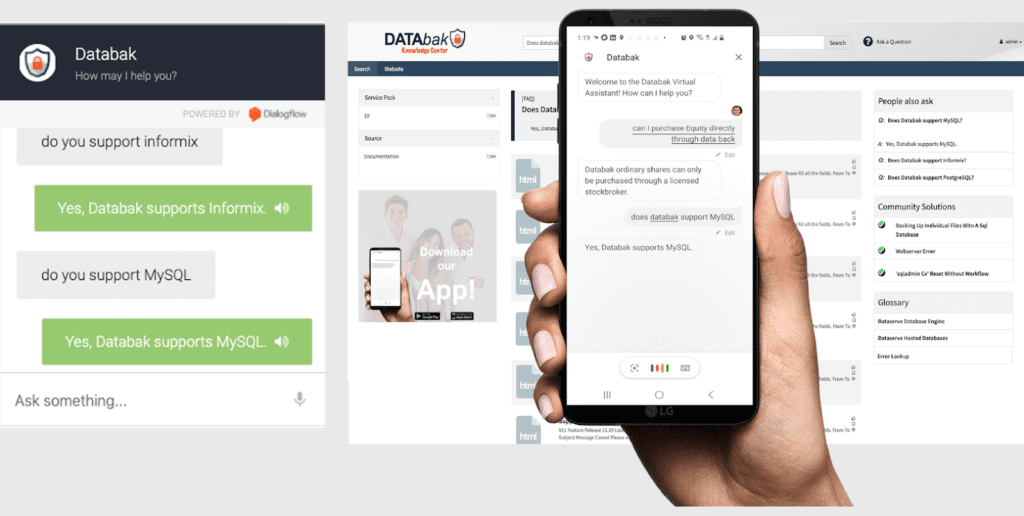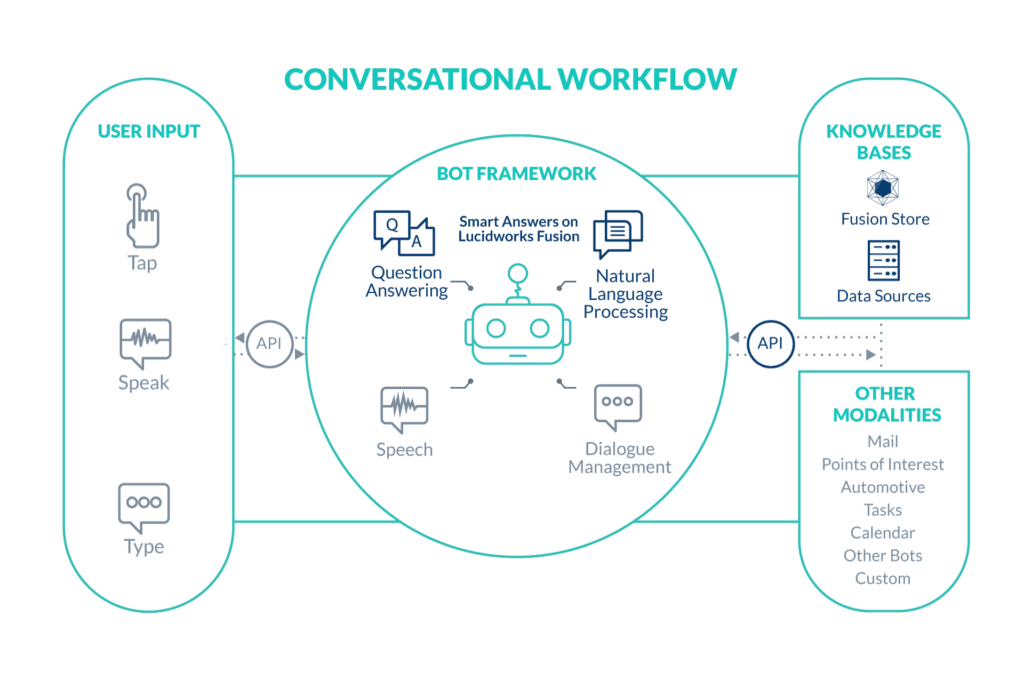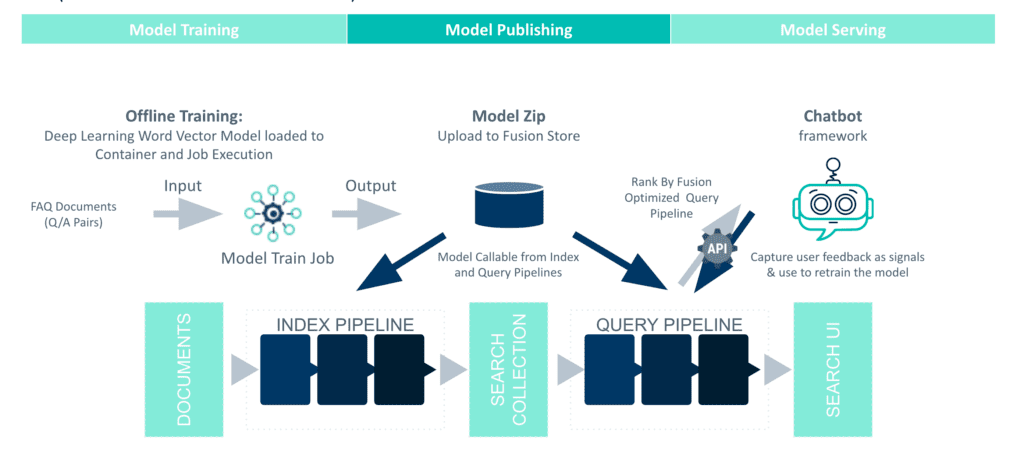Introducing Smart Answers for Better Employee and Customer Care
Smart Answers is a new add-on to Lucidworks Fusion that brings the power of deep learning to chatbots.

At Lucidworks, we’ve been helping our customers provide personalized, contextual touchpoints to their employees and customers since the company’s inception ten years ago. Connecting people to insights through digital channels is our business, and now more than ever we want to add new products that keep strengthening those connections. We are proud to announce Smart Answers, a question-answering add-on to Lucidworks Fusion that brings the power of search and machine learning (ML) to conversational applications like chatbots and virtual assistants. Smart Answers employs deep learning to make chatbots better at understanding intent and answering natural language questions.
Intelligent Chatbots Improve Self-Service
During COVID-19, businesses are seeing increased site traffic–especially to customer and employee support channels. Chatbots are supposed to help users help themselves, but many are limited by static rules that force users to ask questions in a specific way. It is difficult to scale traditional conversational platforms, which involves complex integration of backend systems, intent model training, and natural language processing–all in sync with each other.
Smart Answers makes existing chatbots more intelligent and it helps teams reduce time and effort needed to deploy and scale new chatbots. By empowering users to resolve their own issues, you can deflect more support calls and helpdesk tickets and better care for customers and employees when they need you most.

Pluggable Framework for Easy Integration
Smart Answers’ pluggable API framework allows users to integrate with their chatbot, virtual assistant, or voice applications of choice. Built on Fusion’s scalable index pipelines, Smart Answers can ingest content from disparate knowledge bases to maximize potential answers. Along with out-of-the-box ML and a workflow for training models, teams can plug in externally developed models to leverage existing data science resources.

Low-Code Deep Learning for Faster Time-to-Value
When the people managing the chatbot experience are not deep learning experts, Smart Answers makes it easy for them to deploy without having to write much code (or wait for others to do so). Low-code, parameter-driven jobs allow search developers to train ML models and deploy them into production, without data science expertise. Smart Answers uses natural language processing (NLP) and deep learning to index human questions and match the most relevant answers, drawing on much of the underlying domain expertise inside of Fusion.
Smart Answers includes model training and serving methods for the following scenarios:
- When FAQs or question-answer pairs exist, they can be easily integrated into Smart Answers’ model training framework.
- When there are no FAQ or question-answer pairs, knowledge base documents can be used to train deep learning models and match existing knowledge for the best answers to incoming queries. Once users click on documents returned for specific queries, they become question-answers pairs signals and can enrich the FAQ model training framework.
- When there are no documents internally, Smart Answers uses cold-start models trained on large online sources, available in multiple languages. Once it goes live, the models begin training on actual user signals.

NLP and Semantic Search Power Conversational Experiences
Fusion includes robust NLP to understand sentence structure and makes use of powerful signals boosting to retrieve the right answer. Smart Answers adds semantic search to Fusion’s NLP suite to support an ever-improving, more human level of understanding for conversational apps. Semantic search deep learning models use mathematical logic to match the similarity of a question–which can be asked in many different ways–to the most relevant answer. As users interact with the system, Smart Answers continues to rank answers and improve relevancy.
Lucidworks understands the support challenges facing our customers during the COVID-19 crisis. Suddenly, they need to support workforces that “went remote” over the past ninety days. They need to provide support and guidance to customers who must now interact with them via digital channels. We’ve been tackling those challenges with Fusion, when they were much simpler in scope and smaller in scale. We’re excited to add Smart Answers to our suite of products, as another way to make digital connections more human.
To learn more about Smart Answers on Lucidworks Fusion check out the documentation, or contact us today.
LEARN MORE
Contact us today to learn how Lucidworks can help your team create powerful search and discovery applications for your customers and employees.